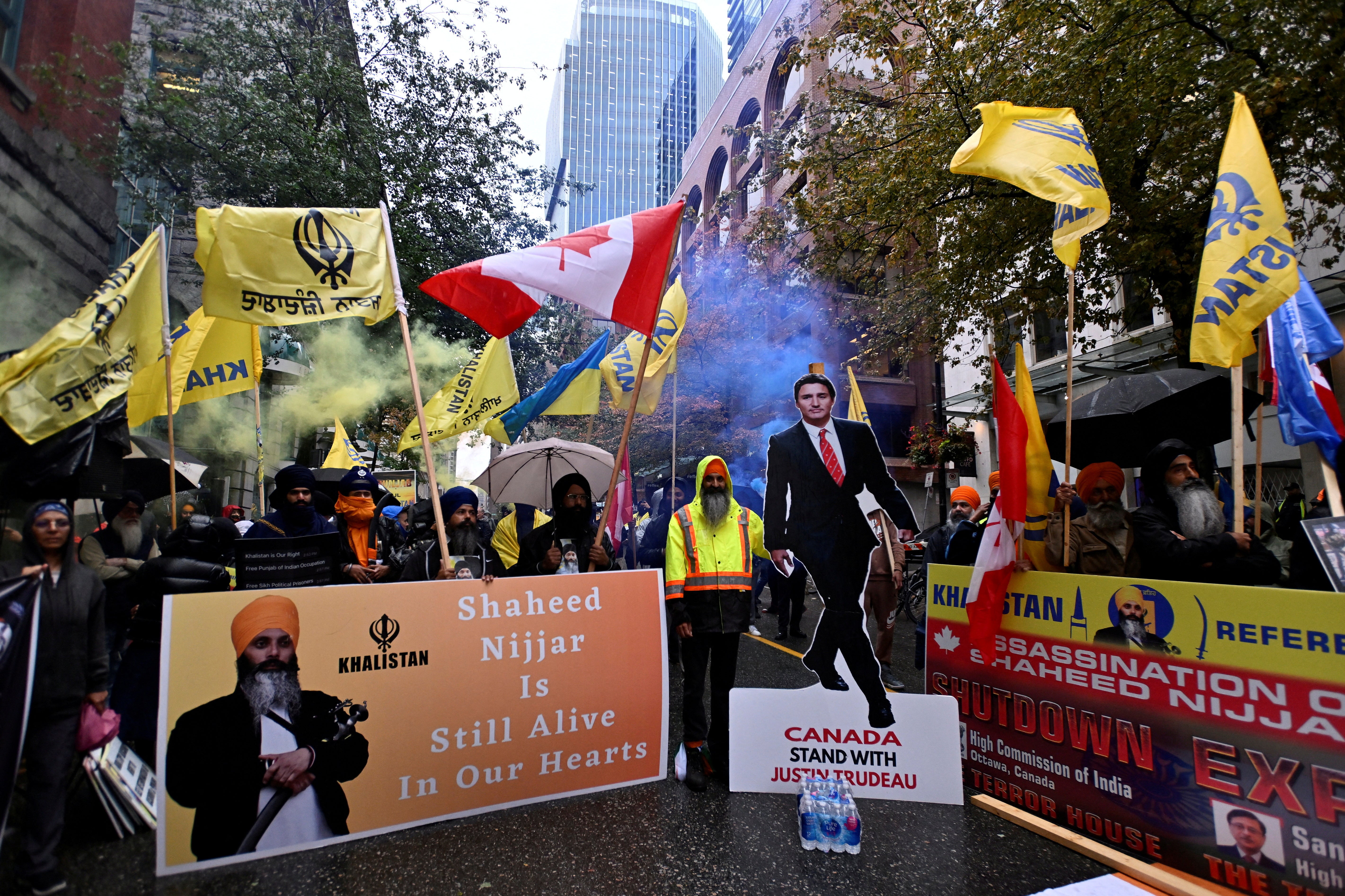Canada arrests three Indians over killing of Sikh separatist leader Hardeep Singh Nijjar
Suspects face charges of first-degree murder
Police in Canada have arrested three Indian nationals over the killing of a Sikh separatist leader last year, which triggered a major diplomatic spat with India.
Hardeep Singh Nijjar – a designated terrorist in India – was assassinated in Surrey on 18 June by two masked men.
Canadian prime minister Justin Trudeau sparked a diplomatic feud in September when he said there were “credible allegations” of Indian involvement in the slaying of Nijjar. India has denied the allegations.
The three suspects have been identified as Karan Brar, 22, Kamal Preet Singh, 22, and Karan Preet Singh, 28, Royal Canadian Mounted Police superintendent Mandeep Mooker said on Friday.
All three suspects were arrested from Alberta, where they lived as non-permanent residents for at least three to five years.

They have been charged with first-degree murder as well as conspiracy to commit murder, according to court documents.
“We are investigating whether there are any ties to the government of India," Mr Mooker said, adding that it was an “ongoing investigation”.
Assistant commissioner David Teboul said Canadian authorities were speaking to counterparts in India. “I would characterise that collaboration as rather challenging," he said.
“It’s been very difficult.”
The three men were expected to be transported to British Columbia by Monday to face charges.
Nijjar, an Indian-born citizen of Canada, was a plumber and also a leader in what remains of a once-strong movement to create an independent Sikh homeland, known as Khalistan. The Sikh secessionist movement calls for a separate homeland for the Sikh religious community to be carved out of India's Punjab state.
Nijjar was accused of leading a proscribed militant organisation called the Khalistan Tiger Force, but he had denied allegations of ties to terrorism.
Three months after his death, Mr Trudeau claimed the Indian government could be behind the killing of Nijjar, which worsened already faltering bilateral ties.
"Any involvement of a foreign government in the killing of a Canadian citizen on Canadian soil is an unacceptable violation of our sovereignty," Mr Trudeau said in parliament.
India rejected Canada's "absurd and motivated" allegations while accusing the Trudeau government of allowing the Khalistan movement to thrive. In response to the allegations, India told Canada last year to remove 41 of its 62 diplomats in the country. Tensions remain but have somewhat eased since.
Moninder Singh, a friend of Nijjar, said the arrests were "bittersweet".
"It's a relief that the investigation is moving forward. At the same time, it's still raising a lot of questions," Mr Singh, a spokesperson for the BC Gurdwaras Council, told Reuters.
Balpreet Singh, legal counsel for the World Sikh Organisation, said: "I think that Canada has been soft on Indian interference for the past four decades. The Canadian Sikh community has had to bear the brunt of it."
But Nijjar's death represents "the undermining of (Canada's) sovereignty at a very, very different level", Moninder Singh said.

